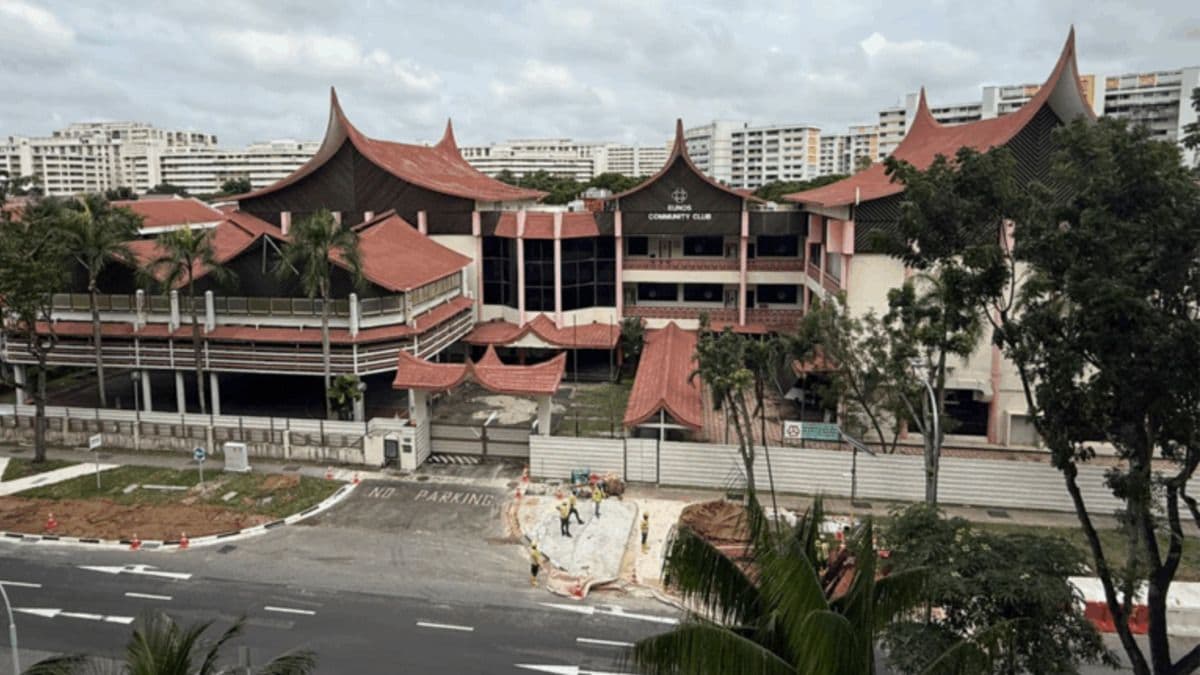CCCS fines Trust-Build and Hunan Fengtian over S$4.6m for bid-rigging in public tenders
The Competition and Consumer Commission of Singapore (CCCS) has fined Trust-Build Engineering & Construction Pte Ltd and Hunan Fengtian Construction Group Co., Ltd a combined S$4.64 million for colluding in three People’s Association tenders worth S$56 million.

- CCCS fined Trust-Build and Hunan Fengtian over S$4.6m for colluding in three People’s Association tenders in 2022.
- Evidence showed coordinated bids, with HNFT preparing TB’s submissions and inflating its own prices.
- CCCS stressed that bid-rigging is a serious breach of competition law, even without contract awards.
The Competition and Consumer Commission of Singapore (CCCS) has imposed penalties totalling S$4,644,409 on Trust-Build Engineering & Construction Pte Ltd (TB) and Hunan Fengtian Construction Group Co., Ltd (HNFT).
The watchdog found that the companies colluded in three major public tenders called by the People’s Association (PA) in 2022, amounting to about S$56 million in total value.
Although neither company secured the contracts, CCCS determined that their conduct infringed Section 34 of the Competition Act 2004 by eliminating genuine competition.
Infringement decision released
The findings were published on 23 May 2025 in a 60-page infringement decision. According to CCCS, the collusion was deliberate, structured, and aimed at distorting the competitive procurement process.
The penalties followed an investigation launched in July 2023 after PA flagged potential bid anomalies before awarding the tenders.
How the collusion worked
CCCS said the coordination was largely orchestrated by Xing Hongyun, General Manager of HNFT’s Singapore branch, and Wang Jianjun, sole director of TB.
HNFT had been instructed by its China-based head office not to participate in new tenders. However, CCCS found that Xing continued to involve the company by preparing TB’s bid documents and setting its bid prices.
The expectation was that TB would subcontract part of the works to Raintree D&B Pte Ltd, a related entity under Xing’s control.
CCCS found that HNFT not only generated TB’s submissions but also submitted cover bids under its own name. These were deliberately priced higher to give the impression that TB’s bids were more competitive.
This pattern was repeated across all three tenders for Bukit Batok, Cheng San, and Eunos Community Clubs.
WhatsApp evidence
The investigation uncovered WhatsApp conversations that demonstrated the coordination.
For the Bukit Batok Community Club (BBCC) tender, Xing asked Wang if the submission could be made “under your company”, to which Wang agreed.

HNFT then prepared spreadsheets listing TB’s proposed bid alongside HNFT’s inflated prices. Notes such as “3% added” and “HNFT based on higher sum” were found. TB’s final bid matched the exact figure suggested by HNFT.
Ultimately, the BBCC tender was awarded to another firm, Ramo Industries.
Mirror bids in Cheng San and Eunos tenders
A similar process occurred with the Cheng San and Eunos tenders. Xing directed focus to these projects and again prepared documents for TB.
TB’s bids were submitted at the precise amounts indicated by HNFT. In one case, TB’s final bid for the Eunos project was S$19,520,176—the exact figure provided by Xing. HNFT’s own bid was S$895,279 higher.
CCCS investigation
Following PA’s concerns, CCCS carried out raids at the firms’ premises in November 2023. Officers obtained emails, WhatsApp messages, and spreadsheets that confirmed coordination.
Multiple interviews were also conducted with key staff. The collected evidence showed clear intent to distort the tender process, CCCS said.
The Commission noted that although no contracts were awarded to TB or HNFT, the collusion nonetheless harmed the procurement process. The bids gave a false impression of competition and could have misled the PA.
Penalties imposed
CCCS assessed the penalties using a six-step framework, taking into account factors such as seriousness, duration, turnover, and aggravating or mitigating elements.
TB was fined S$4,295,059, while HNFT received a penalty of S$349,350. The disparity reflected TB’s greater role, higher turnover, and capacity to undertake large-scale tenders.
Arguments rejected
Both firms contested the allegations, claiming their conduct did not amount to collusion. TB argued it only engaged HNFT to assist with tender preparation and was unaware of the dual submissions.
HNFT said its bids were not genuine attempts to compete but were submitted for “internal record-keeping”.
CCCS rejected both positions as implausible. It said the evidence demonstrated clear knowledge and intent, citing spreadsheets and communication records that highlighted deliberate coordination.
CCCS stance on bid-rigging
In issuing the decision, CCCS reiterated that bid-rigging represents one of the most serious forms of anti-competitive conduct.
Chief Executive Alvin Koh said the watchdog would take “decisive and firm action” against similar schemes in the future.
He added that such practices are particularly damaging in public procurement, where taxpayer funds are at stake and competition is essential for value-for-money outcomes.
Leniency and whistle-blower reminders
CCCS used the case to highlight its leniency programme, which provides full or partial immunity from penalties for parties that voluntarily disclose cartel activity and cooperate with investigations.
It also reminded individuals that whistle-blowers may receive financial rewards for reporting cartel conduct, with their identities kept confidential.
Broader implications
The case highlights the risks of collusion in Singapore’s construction and engineering sector, where public tenders often involve substantial sums.
CCCS emphasised that even when collusion does not directly affect the awarding of contracts, attempts to undermine competition are taken seriously and will be penalised.
The decision also serves as a precedent for enforcement under Section 34 of the Competition Act, which prohibits agreements or practices that restrict, prevent, or distort competition.







